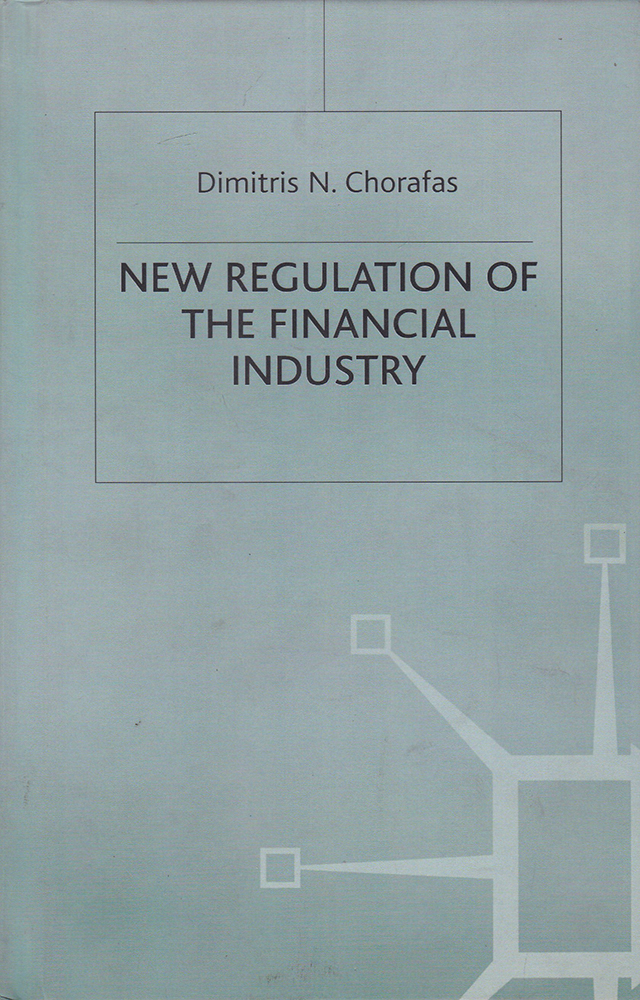The new rules of supervision stress transparency and market discipline, which has an impact on trading strategies and lending patterns as well as the ways of managing assets and liabilities. Written for analysts, traders, technologists and managers of financial institutions, this book provides coverage of the aftermath of this regulatory environment, and the implications of globalization and technological developments.
New Regulation of the Financial Industry
Written by a leading financial analyst, this book provides a detailed overview of the regulatory environment facing the financial industry at the end of the 20th century. Whilst the 1980s and early 1990s focused on de-regulation within the financial sector, today a key point of interest has become re-regulation in a global setting.
Delivery
₹75 shipping all over India
Secure Payment
100% Secure Payment
₹4,011.00₹12,154.00
In stock
| SKU: | 9780333775486 |
|---|---|
| Categories: | Business & Management, Finance & Accounting |
| Tag: | Business Management Books |
| Weight | 1 kg |
|---|---|
| Dimensions | 23 × 15 × 2 cm |
| Book Author | D. Chorafas |
| Edition | 1st |
| Format | Hardback |
| ISBN | 9780333775486 |
| Language | English |
| Pages | 275 |
| Publication Year | |
| Publisher | |
| Sell by | sarasbooksonline.com |
Related products
-
Air Transport Liberalization, A Critical Assessment
₹6,162.00This groundbreaking book offers a critical and wide-ranging assessment of the global air transport liberalization process over the past 40 years. This compilation of world experts on air transport economics, policy, and regulation is timely and significant, considering that air transport is currently facing a series of new challenges due to technological changes, the emergence of new markets, and increased security concerns.
₹14,331.00 -
Following the Trend: Diversified Managed Futures Trading
₹4,899.00An up-to-date and practical roadmap for diversified futures trading using CTA fund strategies
20-22 Business Day Shipping (Supply on Demand)
₹6,450.00 -
Regional Upgrading in Southern Europe
₹6,906.00The book is aimed at a wide audience, including academics, economic geography, spatial planning and regional policy researchers, institutional leaders and managers, national and institutional policy makers, practitioners, administrators, master’s and senior bachelor’s students on related courses, general readers.
₹18,699.00 -
Gender and Time Use in a Global Context
₹6,030.00The macroeconomic portion explores cutting edge issues such as time poverty and its relationship to income poverty, and the macroeconomic effects of recession and austerity; while the microeconomic section studies topics such as differences by age, activity sequencing, and subjective well-being of time spent.
₹14,024.00 -
Collaborative Approach to Trade
₹4,824.00An in-depth analysis of trade routes is presented, which can be used to develop policies for increasing efficiency and reducing costs. Landlocked Uganda and the sea-locked South Pacific Islands serve to illustrate the problems of covering sizable distances, accelerating export flows and improving supply chain efficiency. These examples also provide an excellent illustration of the power of regional science, from assembling data bases in difficult situations to developing and applying models of the trade system.
₹11,219.00 -
Knowing Her Place, Positioning Women in Science
₹4,422.00More women are studying science at university and they consistently outperform men. Yet, still, significantly fewer women than men hold prestigious jobs in science. Why should this occur? What prevents women from achieving as highly as men in science? And why are so few women positioned as ???creative genius?? research scientists?
₹10,284.00 -
Shades of Sovereignty: Money and the Making of the State
₹2,173.00This comprehensive book traces the role of money in the creation of the state. Starting in the early modern era, Paul Wilson explores the monetary systems of empires and new states in the age of nation-building in the eighteenth and nineteenth century.
₹3,391.00 -
The Takeover of Social Policy by Financialization: The Brazilian Paradox
₹5,934.00This book upends the so-called post-neoliberal reading of the new wave of social and economic development in Brazil at the turn of the twentieth-first century. It uncovers what I term ‘the Brazilian Paradox’ that is, the recent ongoing shift towards a mass consumption society coterminous with the resilience of underdevelopment.
₹11,219.00









Be the first to review “New Regulation of the Financial Industry”